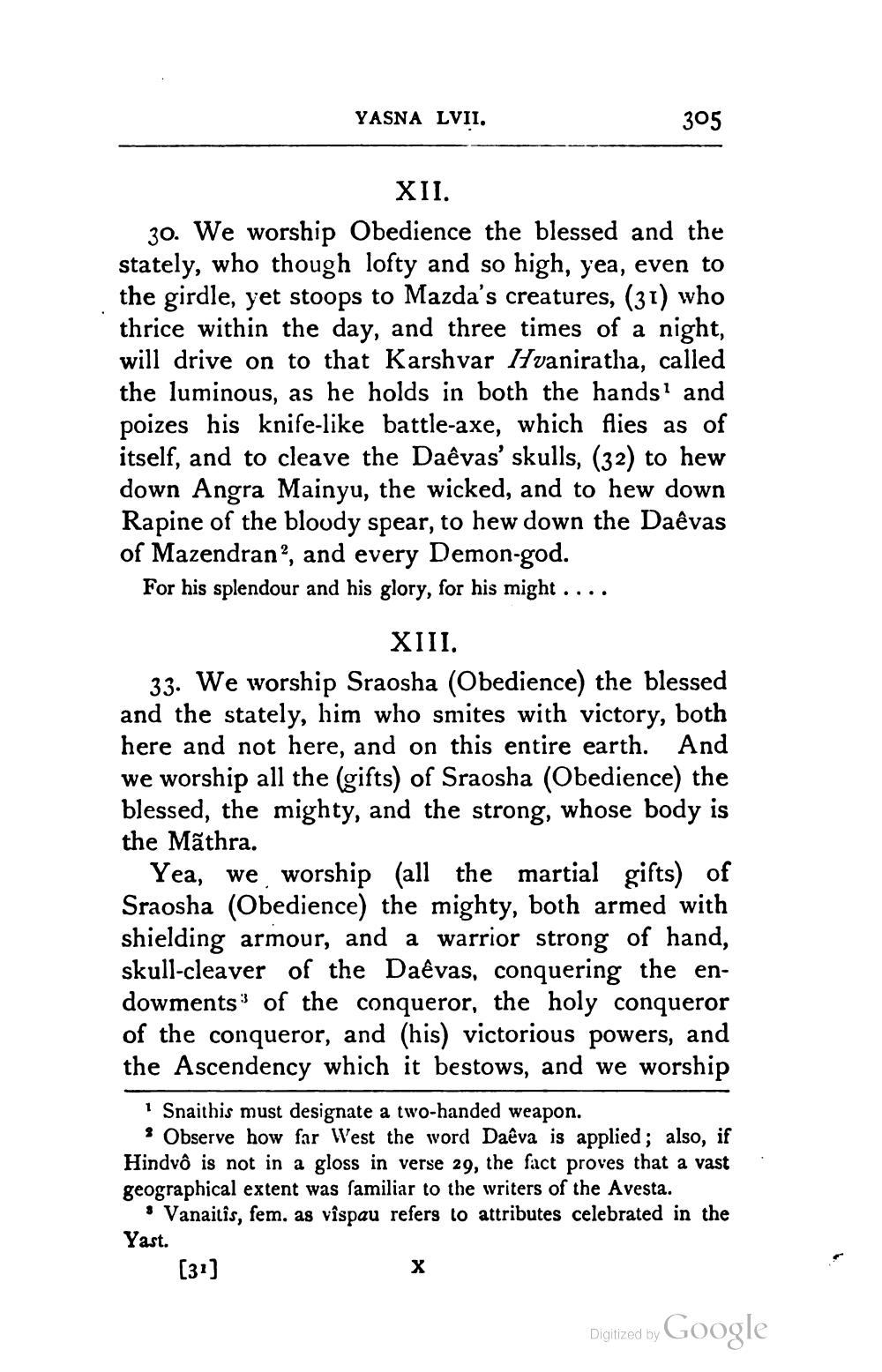________________
VASNA LVII.
305
XII. 30. We worship Obedience the blessed and the stately, who though lofty and so high, yea, even to the girdle, yet stoops to Mazda's creatures, (31) who thrice within the day, and three times of a night, will drive on to that Karshvar Hvaniratha, called the luminous, as he holds in both the hands? and poizes his knife-like battle-axe, which flies as of itself, and to cleave the Daêvas' skulls, (32) to hew down Angra Mainyu, the wicked, and to hew down Rapine of the bloody spear, to hew down the Daêvas of Mazendran?, and every Demon-god. For his splendour and his glory, for his might ....
XIII. 33. We worship Sraosha (Obedience) the blessed and the stately, him who smites with victory, both here and not here, and on this entire earth. And we worship all the (gifts) of Sraosha (Obedience) the blessed, the mighty, and the strong, whose body is the Mãthra.
Yea, we worship (all the martial gifts) of Sraosha (Obedience) the mighty, both armed with shielding armour, and a warrior strong of hand, skull-cleaver of the Daêvas, conquering the endowments of the conqueror, the holy conqueror of the conqueror, and (his) victorious powers, and the Ascendency which it bestows, and we worship
1 Snaithis must designate a two-handed weapon.
. Observe how far West the word Daêva is applied; also, if Hindvô is not in a gloss in verse 29, the fact proves that a vast geographical extent was familiar to the writers of the Avesta.
: Vanaitis, fem. as vispau refers to attributes celebrated in the Yast.
[31]
Digitized by
Digitized by Google




